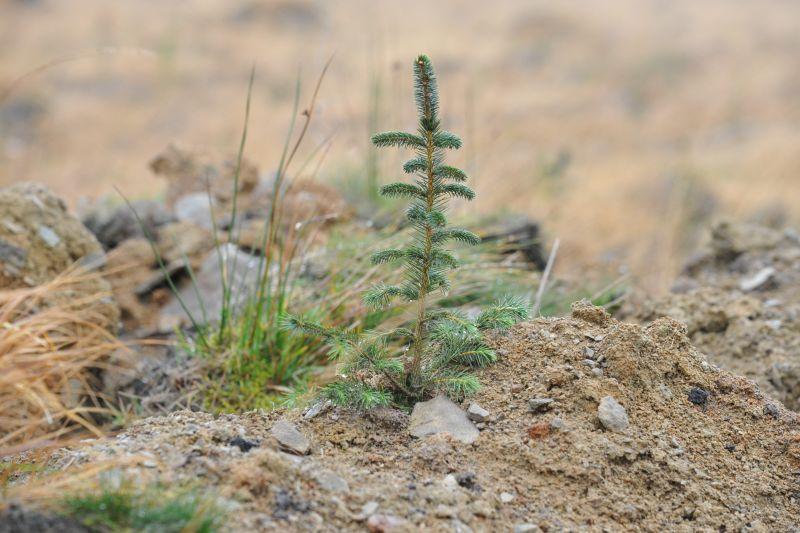
A Welsh hill farm has secured a sustainable future by planting 120 acres of forestry through the Woodland Creation Scheme.
The Lydiate family farm sheep at Tynyberth, a 500-acre Farming Connect Demonstration Site at Abbey-Cwm-Hir, near Llandrindod Wells, Powys.
When Jack Lydiate returned to farm in partnership with his parents in 2016, he looked at options to put the business in a stronger position going forward.
At its highest point, the land rises to 1,750 feet and the potential of the more marginal land was not being maximised through livestock production.
Forestry was a good match for this land. Mr Lydiate applied to be part of Glastir Woodland Creation, a Welsh Government scheme that provides financial support for new planting. Financial support is also available for planting trees in areas that continue to be grazed as part of an agroforestry system i.e. combining agriculture and forestry.
In 2017, 120 acres of hard and soft wood trees were planted on the Lydiates' land, and another 30 acres will be planted in 2018.
The agreement provides the Lydiates with a guaranteed annual payment for 12 years; 15 years after planting, the first thinnings will be taken and, after 30 years, the Lydiates can fell the mature forest and sell the wood as timber.
Mr Lydiate says this diversification secures a future for the next generation.
"It gives me a baseline for when the trees need to be felled and secures a future for the children," he said.
Geraint Jones, Farming Connect Forestry Technical Officer, also made Mr Lydiate aware of the Woodland Carbon Code.
"The volume of carbon sequestered is calculated in terms of carbon tons and once validated can be sold to companies offsetting their carbon footprint," Mr Jones explains.
The site at Tynyberth is forecast to sequester in excess of 8,000 carbon tons over the period of the contract.
